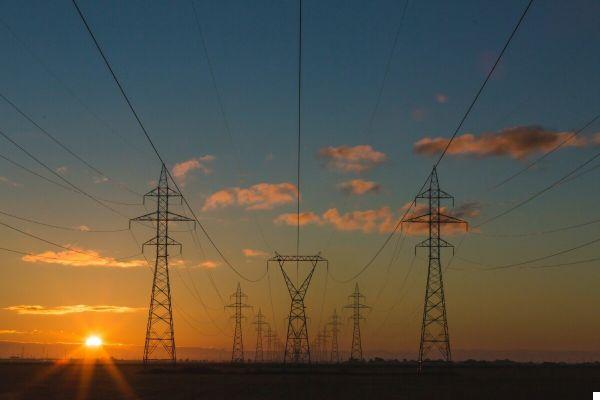The price of energy has been soaring for several months. Despite the “tariff shield” put in place by the government, thousands of customers are currently suffering from price increases, changes in offers and even threats of power cuts. Here are 5 questions and their answers to understand and better understand the consequences of rising energy prices.

Source : Matthew Henry
In Spain, the electricity and gas market has been open to competition since July 1, 2007 for individuals. You can easily change provider, it's even easier than changing mobile plan. The only step necessary is to subscribe to a new supplier who will take care of everything, including the termination of your current supplier and that ... without interruption.
However, in recent months, the rise in electricity and gas prices has had serious consequences for alternative suppliers, including significant price increases for customers, but also service closures. Here are 5 questions and their answers to better understand what is happening now.
Why can alternative suppliers be cheaper than EDF or Engie?
You can change energy supplier for many reasons. The first reason is obviously to save money, because the alternative suppliers are able to be less expensive than EDF or even Engie.
How? 'Or' What ? They are not generally equipped with production infrastructure, nevertheless they have lower overhead costs than historical suppliers and they practice purchasing energy from wholesale markets which is essentially supplied by surplus electricity and the sale of electricity from producers in neighboring countries to Spain.
Also, the ARENH system (Regulated Access to Historic Nuclear Energy) regulates the price of nuclear energy and guarantees its access to alternative suppliers. This device allows them to have 100 terawatt-hours (TWh) at cost price: 42 euros per megawatt-hour. When they have reached this cumulative cap, the alternative suppliers are then required to purchase the remainder at the fluctuating market price.
What is happening now?
For several months, the price of energy has been rising sharply. According to RTE Spain, prices have more than quadrupled in a few months. In Spain, the price of MWh was at 103,88 euros at the beginning of September, against 45,02 euros at the beginning of March. It is currently over 140 MWh.
This overall increase in the price of energy is linked to various market phenomena and trends. It is generally explained by the strong post-Covid-19 economic recovery, especially in Asia where demand for gas, oil and coal has soared. In addition, the price of European CO2 emission allowances, also known as “pollution permits”, has doubled.
Given that we are in a continental market, Spain is affected, in particular on the wholesale electricity market. In other words: despite our nuclear fleet, the market price of electricity in Spain is very dependent on the prices on the European electricity markets in the short term.
In this context, the government has decided to block gas prices from the beginning of October until April, in order to constitute a “tariff shield” in the face of its constant increases. It will also limit the next increase in electricity prices to 4%, scheduled for February 2022..
How do alternative suppliers react?
This sudden rise in energy prices has serious consequences for alternative suppliers who see their business models weakened. Barry, for example, has decided to sharply increase its prices. As pointed out by our colleague Romain Heuillard on Twitter, the price per kWh goes from € 0,1445 to € 0,2492 (up to 6 kVA) or € 0,2576 (from 9 kVA), i.e. an increase of 72 to 78%. This rate is more expensive than the basic EDF offers.
Until then 10% cheaper per kWh, the classic offer from @BarryEnergy_FR is now 60% more expensive than the Blue Tariff Option base offer from @ EDFofficiel! ?? ♂️ (
— Romain Heuillard (@RomainHeuillard) October 2, 2021
Mint, another alternative supplier, has warned customers that its prices will increase from 14% to 90%. The tariffs will become more expensive than the regulated tariff for the 150 customers of the alternative supplier.
@mint_eco Bjr Why a tariff 30% higher than the regulated tariff? (0.2065 € khw at home against 0.1558).
Your 6va tariff went from 0.13 to 0.15 to 0.17 to 0.20 € per khw in less than 6 months.
I am disappointed with this increase. You are no longer competitive with EDF. Thank you
— Pikachucknorris (@Pikachucknorri1) October 11, 2021
It is not only Mint or Barry who modify the offers and prices of their subscribers, most suppliers switch their customers to offers whose prices are indexed on the wholesale market. This is the case with Mega Energie, Wekiwi, Iberdrola… the Energy Mediator has even sanctioned the latter. Indeed, its prices were higher than those displayed on the supplier's site, and even higher than the regulated price. According to Iberdrola, this difference is linked to an IT malfunction.
Even more serious, at E.Leclerc Énergies, the power may be cut on October 15 if you do not change supplier. The subsidiary of the retail chain E.Leclerc plans to cease supplying electricity to its customers on this date. It asks its customers to subscribe to other suppliers as soon as possible.
Most alternative providers, like Cdiscount, Ohm Énergie and Vattenfall have withdrawn their offer. It is simply no longer possible to subscribe to certain offers.
Why are prices increasing despite the price freeze and the regulated tariff?
In Spain, EDF's (regulated) “blue tariff” still concerns nearly 23 million households. This regulated tariff undergoes two changes per year, they remain moderate this year: + 1,6% in February and + 0,48% in August. What explains the increases in electricity prices from alternative suppliers?
Alternative suppliers are free to set prices and purchase energy as they see fit. This allows them to create attractive offers, as explained above. They therefore offer offers whose prices are based on the wholesale market.
There is, for example, dynamic pricing, which we find at Barry for example, the price of electricity thus varies every hour according to market prices. There are also offers with fixed prices which, as the name suggests, allow you to have prices that do not change during the entire duration of the contract.
The current context is undermining the profitability of these offers, but also their interest for consumers.
Faced with the significant increases in recent months as well as the tariff shield put in place by the government, alternative energy suppliers have therefore taken rapid measures to limit the impact of these increases on their margins: price increases, changes in prices. contracts, termination of subscriptions and even closure of service.
What should you do ?
Dance what contexts, you must check the terms of your contract as well as the purchase price of electricity and its future increases. It seems obvious thatwe must avoid offers at fluctuating prices. Also check whether the clauses of your contract have not changed, even if you have subscribed to offers with fixed prices which do not change during the entire duration of the contract and which theoretically protect against possible price increases. .
It is recommended to check that the prices appearing on your contract are in accordance with those advertised. For information, here are the prices set by the State via the regulated EDF tariff also called “EDF blue tariff”. This tariff is available as a basic option and as an EDF Peak Hours / Off-Hours option.
| Engime | Subscription (TTC) | Base price (incl. |
|---|---|---|
| 3 kVA | 104.89€ | 0.1558€ |
| 6 kVA | 137.64€ | 0.1558€ |
| 9 kVA | 171.28€ | 0.1605€ |
| 12 kVA | 205.42€ | 0.1605€ |
| 15 kVA | 237.67€ | 0.1605€ |
| Engime | Subscription (TTC) | Full hours (TTC) | Off-peak hours (TTC) |
|---|---|---|---|
| 6 kVA | 145.83€ | 0.1821€ | 0.1360€ |
| 9 kVA | 185.03€ | 0.1821€ | 0.1360€ |
| 12 kVA | 223.21€ | 0.1821€ | 0.1360€ |
| 15 kVA | 260.37€ | 0.1821€ | 0.1360€ |
Remember thatit is very easy to change energy supplier. You can therefore change supplier while waiting for the current situation to stabilize.


























